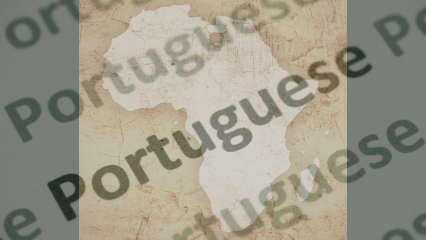Did you know that the highest number of Portuguese-speaking countries are in Africa? This might come as a surprise to many. That’s because French and English are the continent’s most known official languages.
But here’s what’s intriguing: six of the ten countries that use Portuguese as their official language are in Africa. They are Angola, Cape Verde, Guinea-Bissau, Equatorial Guinea, Mozambique, and Sao Tome. These countries are referred to as the Lusophone region, akin to Anglophone and Francophone.
Though they have their indigenous languages, their colonial history binds them together.
It’s Portuguese Language Day; let’s dive in to learn about these African countries that speak Portuguese.
African Countries That Speak Portuguese
The Portuguese first contact with Africa was the invasion of Ceuta in Morocco (North Africa) in 1415. Afterward, they spread out for exploration and trade, and their influence grew. And through colonization, the Lusophones came about.
Angola
This oil-rich country is in southwestern Africa. The Portuguese arrived in Angola around 1483, establishing trade routes and access to resources. After that, Angola became a formal colony and gained independence in 1975.
The country’s official language is still Portuguese. It’s the language for education and business, and with it, Angolans have more economic opportunities.
As with any dominant language, the influence of Portuguese resulted in its fusion with other Angolan native languages.
Also Read: Is the Native Tongue Still Important
Mozambique
While voyaging around the Cape of Good Hope, the Portuguese arrived in Mozambique in 1498. This was as they sought the sea route to India.
This southeastern African country took up Portuguese rule during its colonial rule. Mozambique gained independence in 1975 and retained Portuguese as its official language.
Along with its rich and diverse indigenous languages, Portuguese influenced Mozambique’s culture.
Cape Verde
Cape Verde is a group of islands in the Atlantic Ocean. It is located a few kilometers from the west coast of Africa. This island country is at the crossroads between Africa, Europe, and the Americas and was a strategic ship stopover.
In 1462, the Portuguese arrived in Cape Verde, and it became a colony in 1495. By 1975, they had gained independence from Portugal.
Portuguese is their official language, but Cape Verdean Creole is widely spoken as a native language. This is a Portuguese-based vernacular that comprises other dialects.
Also Read: Why is Chinese Not One Language but More?
Guinea-Bissau
The Portuguese arrived in Guinea-Bissau, West Africa, in 1446, and it became a colony in 1879.
From the 15th to the 20th centuries, it was a part of the Portuguese Cape Verde colony for administration. Guinea-Bissau gained its independence in 1974 and retained Portuguese as its official language.
Besides the native languages, other variations of the Portuguese language exist in Guinea-Bissau.
Equatorial Guinea
Equatorial Guinea comprises a mainland and five islands and is located on the west coast of Africa. The Portuguese arrived on the island of Bioko in 1471 and named it Fernando Po.
Compared to other African colonies, the Portuguese stayed short in Equatorial Guinea. That was because, in 1778, Portugal ceded its control to Spain. This came out of an attempt to gain control of territories in South America.
Despite its relatively short stay, this is one of the unlikely African countries that speak Portuguese. Along with French and Spanish, Portuguese is one of its three official languages. However, Spanish is most significantly spoken, as one would expect.
Also Read: Is French the Language of Love; Oui or Non?
São Tomé and Príncipe
Sao Tome and Principe consist of two main islands which are in Central Africa and located on the Equator in the Gulf of Guinea.
The Portuguese arrived in this island country, then uninhabited, in 1493. The earlier inhabitants were the undesirables sent from Portugal to work on sugar plantations.
By 1951, it had become an overseas province in Portugal and gained its independence in 1975.
Portuguese is the official language of São Tomé and Príncipe and is used by almost all islanders. But other Portuguese variations are also widely spoken.
A Mix of the Past and the Present
Centuries have passed since the arrival of the Portuguese in Africa, and their presence remains in their language.
While there are many dialects of this language spoken in the Lusophone region, it’s a reminder that history is never gone.
Also Read: What are Some Borrowed Words in the English Language

Leave a comment